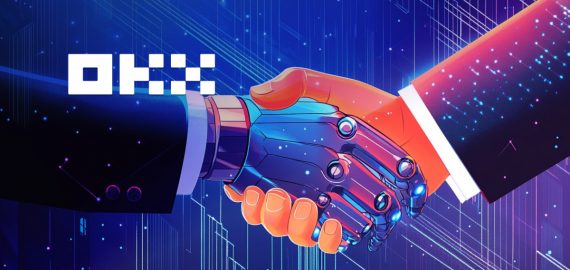How Kurosawa’s “Chime” Sets the Stage for Web3 Innovations in Movies Streaming


In Brief
Albhy Galuten discusses the concept of Web3 movies, exploring their potential as NFT collectibles and the transformative impact of blockchain technology on creative industries like songwriting, alongside insights into the challenges and future innovations in Web3 entertainment.
Today, we had a chance to speak with Albhy Galuten, a Senior Fellow at Intertrust, whose visionary insights into the evolving landscape of technology and entertainment are invaluable. With critically acclaimed Japanese director Kurosawa’s Web3 film premiere, “Chime”, Albhy’s expertise helped us explore the transformative potential of Web3 technologies like blockchains and NFTs in changing international movie distribution and fan engagement.
“Chime” is a Web3 movie. Let’s start with the general question – what is exactly a Web3 movie?
Firstly, we are talking about movies as NFT or a collectable. For example, you used to buy a DVD disc, and there would be special features like the director’s cut or other things, so only maybe 10% of the people would ever look at the extras. But to those 10% of the people, they were really valuable. Well, now you can sell extras as an NFT. You can download it and watch it if you want to pay for it.
And if it’s rare, you can sell it for more. What happens with NFTs and our technologies is that we can take all of the things and make them either scarce or not. You can put something on Spotify or on Netflix, and everybody can watch it.
You can go for the lowest common denominator and try to appeal to millions of people, or you can have a few thousand fans who are really engaged, who really care about it, and who want to spend more money. For certain kinds of genres and certain kinds of artists, that’s much more relevant.
Do you think ordinary people would buy such NFT movie pieces?
People have been collecting things forever, such as baseball cards or jerseys of famous players or anything that you can collect. Well, now you can collect digital things. We’re sort of moving the boundaries between buying and streaming and between physical and digital.
So this is just a case where somebody has certain avid fans and a certain kind of contingent. It would not have been a big hit on Netflix, but probably not. For a certain audience, it is incredibly valuable, and they want to experiment with it. And it doesn’t have to be the whole movie. It could be just the director’s cut, or it could be a backstage interview, or it could be photographs, or it could be anything you want.
It could be the backgrounds as well. When you make a film today, you often use point cloud technology. So you have a background that’s all created, and all the elements on your set can be virtual. There’s nothing stopping you from selling the scene that the movie was shot in, and you can put your own images in that scene. So, any sort of digital object can be segregated, separated and folded individually. You know, because of the way our technology works, you can build and design any kind of business model you want around it.
What about the songwriters? How can blockchain technology be used for them?
One of the things that we do is allow songwriters to sing a melody into your phone, press a button, and it is immediately stored on the blockchain, encrypted, signed, hashed, and it’s copyrighted.
So the moment you have that first little melody, you can update that every five minutes, every five hours, five days or five years. It doesn’t matter; it just lives on the blockchain. So now you have the copyright authenticated.
If you get into an argument two years later about who has what share or who did what, you have all the data to provide provenance for the creative process. I think this is a fundamental change in the way the creative arts work as opposed to the traditional way.
What challenges or obstacles do you anticipate in the widespread adoption of Web3 technologies in the entertainment industry, and how do you plan to address them?
The first thing that I think will happen, and it’s slowly starting to happen, is people are evolving beyond crypto. The fact that many of the NFTs can only be purchased using crypto or with a wallet is a shortcoming.
Most consumers have a lot of difficulty setting up wallets, don’t understand them, and don’t know where they are. A provisioned wallet is not that different from Amazon, which keeps your credit card information. It’s just a question of whether or not you trust the person that maintains your information.
How does Intertrust use blockchain for its services?
We have a very sophisticated rights expression architecture. We know how to govern things in great detail and have pretty much everybody who uses digital rights management take a license from us.
Everyone from all the major studios, Netflix, Apple, Google, and Amazon, all have a license from us because we have the foundational technology. What we do is generate a contract between however many parties there are. We encrypt the contract, sign it, and stick it in the cloud. Then, we take the signature and the hash of that contract and the names and identities of the signatories, and we put that on the blockchain.
Nobody can screw with it. It is an immutable contract, but the contract itself doesn’t live on the blockchain. Only the signature, the hash, and the identities live on the blockchain so that we can have any kind of contract that we want to express. You can also use any arbitrary business model that you like.
I think we are the only company that can display generative art on commercial devices. So, if you buy a piece of generative art today, the way you watch it on your TV is you play it, and you do the processing on your laptop, and then you stream it to your TV set. Using our technology, you can buy it and literally stream it.
Do you prioritise digital rights management while providing your services?
Digital rights management was so ubiquitous when we started doing it in the 90s that it was very hard to have interoperability. Now, there’s a common encryption format: if we encrypt something with DRM, it is viewed seamlessly on any Macintosh device, Apple device, every phone, every tablet, and every TV. You just click on the button, and it plays. If you have the rights to it, it plays, but it is still encrypted.
Most NFTs are not encrypted. And so it’s just a wild west. You can buy it, and then you can do whatever you want with it, which is fine, but I think that if you like the intellectual property you own to be governed and to abide by what you said you wanted to do, then you need digital rights management. And marrying digital rights management with blockchain is something that I think we are the only people who are doing.
Do you anticipate any further developments and innovations in the Web3 entertainment industry?
I think that interoperability of 3D objects is inevitable, and they also need copy protection. I think lots of physical things will be tied to virtual. We were demonstrating stuff at IBC, where we had NFC chips in the winning ball of a football match. It’s got an NFC chip in it. I know that it’s verified, and it was signed by all the people; now I can resell it. And maybe I would also have the right to use that ball in the metaverse. When I play in the FIFA game, I get bragging rights to say that I’m using a virtual version of the actual ball that won the World Cup last year.
It’s not like this is going to change the world, and everyone’s going to stop watching Netflix. But it is a way of enhancing stuff, particularly for fans and for super fans, for people who want to collect things, who want to say, hey, I have the version of this, and I can do what I want with it.
With all this adoption of Web3 and recent protests in Hollywood, do you think there will be new protests and new regulations in this industry?
Well, on AI for sure. On Web3 and the metaverse, I think the thing that is difficult about the metaverse from a regulatory standpoint is it’s kind of borderless. So if you say you’re not allowed to make a deep fake of a person and have them say something they didn’t say, that could be against the law in some countries.
The only way to create a regulation is to have an international body like the World Trade Organization or the International Monetary Fund provide global guidelines. And if you do not follow these guidelines, then there will be economic repercussions.
Disclaimer
In line with the Trust Project guidelines, please note that the information provided on this page is not intended to be and should not be interpreted as legal, tax, investment, financial, or any other form of advice. It is important to only invest what you can afford to lose and to seek independent financial advice if you have any doubts. For further information, we suggest referring to the terms and conditions as well as the help and support pages provided by the issuer or advertiser. MetaversePost is committed to accurate, unbiased reporting, but market conditions are subject to change without notice.
About The Author
Victoria is a writer on a variety of technology topics including Web3.0, AI and cryptocurrencies. Her extensive experience allows her to write insightful articles for the wider audience.
More articles

Victoria is a writer on a variety of technology topics including Web3.0, AI and cryptocurrencies. Her extensive experience allows her to write insightful articles for the wider audience.


















































